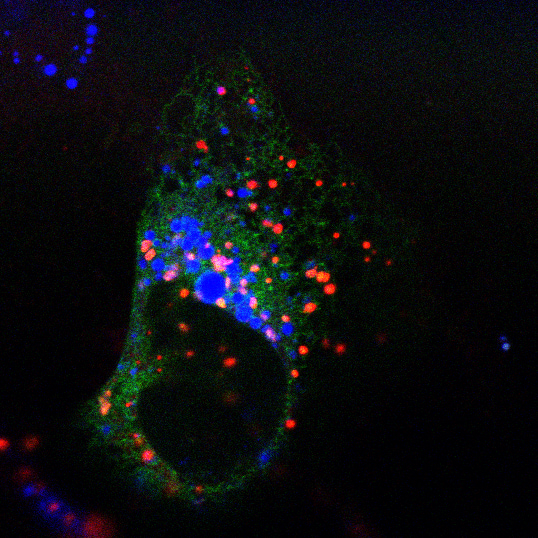Unraveling the methionine mystery: Wayne State receives grant to new treatment paths for cancer
Wayne State Biological Sciences Assistant Professor Hanaa Hariri was awarded a prestigious pilot grant from the Karmanos Cancer Institute (KCI) to advance research into the effects of starving cancer cells of a single amino acid.

It has long been known that the essential amino acid methionine is critical for the proliferation of cancer cells. For biologists, this is puzzling – given that methionine is a critical component in all of our proteins and that of other living forms.
Dr. Hariri's new research project is poised to resolve this puzzle and to understand the mechanisms behind the specific "methionine dependency of cancer," utilizing her expertise concerning fundamental mechanisms of organelle and lipid organization in animal cells.
With the new one-year support from the KCI, Hariri's group will explore how starving cancer cells of methionine affects the crucial turnover of lipid droplets in cancer cells. In the long term, understanding these mechanisms has the potential to open new avenues to develop specific treatment strategies for cancers.
There is also evidence suggesting that methionine restriction can improve overall health, prevent obesity and diabetes, and extend lifespan in experimental animal models. This pioneering research holds promise for significant advancements in cancer therapy and age-related disorders.
Dr. Hariri states "I am thrilled about this partnership with the KCI with a goal to address new and critical questions in cancer research. The collaborative and supportive environment at KCI is unparalleled, offering a wealth of resources and expertise that will undoubtedly drive our research forward.
I am confident that with KCI's robust support, we will achieve significant breakthroughs and make meaningful contributions not only in the fight against cancer but also to unravel new fundamental biology of how our cells regulate their metabolic networks."